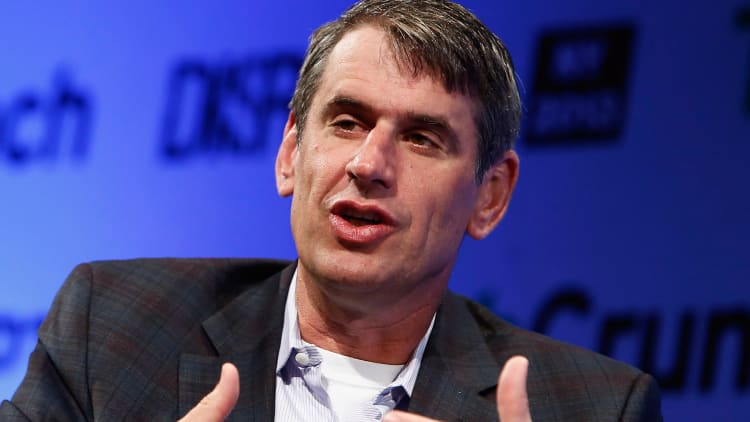Bill Gurley has invested in a number of successful tech startups, including Uber, OpenTable, Zillow, and GrubHub.
All of those companies attempted to give the consumer more control over processes that were previously complicated or opaque, whether it was hailing a taxi and wondering why it didn't stop, or trying to comparison shop for homes.
Now, he sees similar opportunities in health care, where the business model is seriously broken.
"What other business do you go to where there are no receipts, then six weeks later you get a letter in the mail that tells you the carrier thinks the provider overcharged you, then six weeks after you see a price? That is insanity," he told CNBC.
Solv, a Benchmark-backed startup that helps people schedule appointments at urgent care centers, conducted a revealing survey of 1,386 people in conjunction with the Urgent Care Association of America.
It found that 70 percent of people look for prices when they visit their doctor, but only about a quarter get answers when they ask their doctors for information, and nearly half say they feel "stupid" for asking.
Unlike traditional doctor's offices, retail clinics like One Medical -- another Gurley investment --tend to advertise their prices for services.
"If you ask incumbents, they'll tell you consumers don't make decisions on price. What's bankrupt in that argument is the consumer doesn't know they should," Gurley said. "You have to have years of exposure to what's happening at Walmart and CVS, and they can affect this. (Consumers) have been taught you don't need to know and ask."
His other investments in the space include Stitch Health, a care coordination system, and Brighter, a digital health plan that was acquired by health insurer Cigna in December.
Gurley admits it's difficult to change the health-care industry. Unlike most businesses where there's one center of gravity, he said, there are multiple pulling from many different directions. That and an "amazingly complex spiderweb of incentives" stunts efforts to introduce new technologies and lower the cost of care.
Telemedicine, which virtually connects patients with doctors, has hit such barriers, Gurley says. The technology exists, but it hasn't been widely adopted because doctors don't know how to charge and be reimbursed for it, he said.
"In any other industry, if you had the capability to do something virtually and reduce costs, everyone would go do that," he said. "But that's not happening here."
Despite the seemingly bleak outlook, Gurley sees consumers wanting more transparency and more convenient, less expensive options. That's because, people are paying more of their health-care costs as health insurance co-pays and deductibles increase.
Plus there's room to create better consumer experiences.
Pharmacies are a prime example, he said, and he thinks Amazon could do a lot to fix it.
"I think Amazon has a role to play in that world if they want to do it, but I don't think they're thinking about making huge money because most of those prices are regulated and there's not much margin there. But it's the consumer experience," he said. "It's like Prime Video, they throw it in and people will love (Amazon) more."
Now watch: November 2017 interview with Bill Gurley



